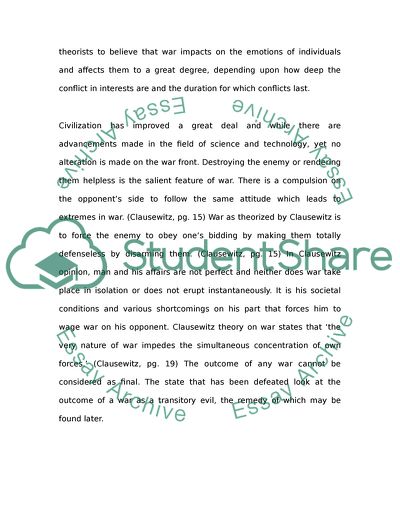Cite this document
(The Essence of Clausewitzs Theory on War Essay Example | Topics and Well Written Essays - 1750 words, n.d.)
The Essence of Clausewitzs Theory on War Essay Example | Topics and Well Written Essays - 1750 words. Retrieved from https://studentshare.org/military/1733107-can-clausewitzs-insights-be-applied-to-contemporary-warfare
The Essence of Clausewitzs Theory on War Essay Example | Topics and Well Written Essays - 1750 words. Retrieved from https://studentshare.org/military/1733107-can-clausewitzs-insights-be-applied-to-contemporary-warfare
(The Essence of Clausewitzs Theory on War Essay Example | Topics and Well Written Essays - 1750 Words)
The Essence of Clausewitzs Theory on War Essay Example | Topics and Well Written Essays - 1750 Words. https://studentshare.org/military/1733107-can-clausewitzs-insights-be-applied-to-contemporary-warfare.
The Essence of Clausewitzs Theory on War Essay Example | Topics and Well Written Essays - 1750 Words. https://studentshare.org/military/1733107-can-clausewitzs-insights-be-applied-to-contemporary-warfare.
“The Essence of Clausewitzs Theory on War Essay Example | Topics and Well Written Essays - 1750 Words”. https://studentshare.org/military/1733107-can-clausewitzs-insights-be-applied-to-contemporary-warfare.


